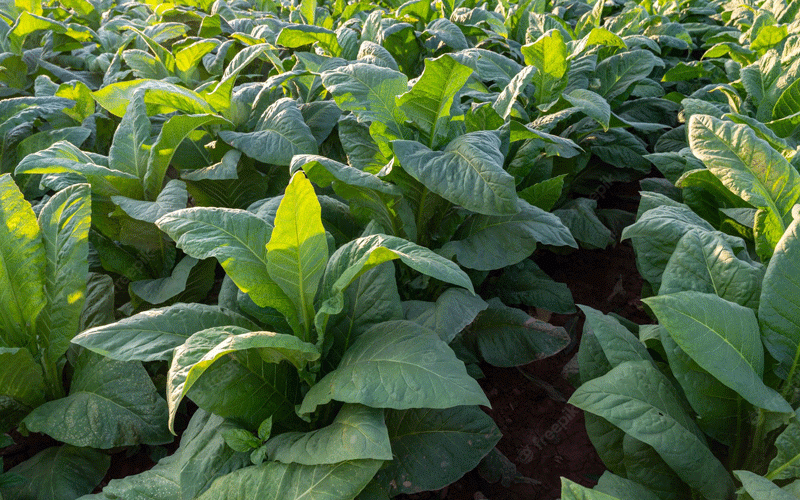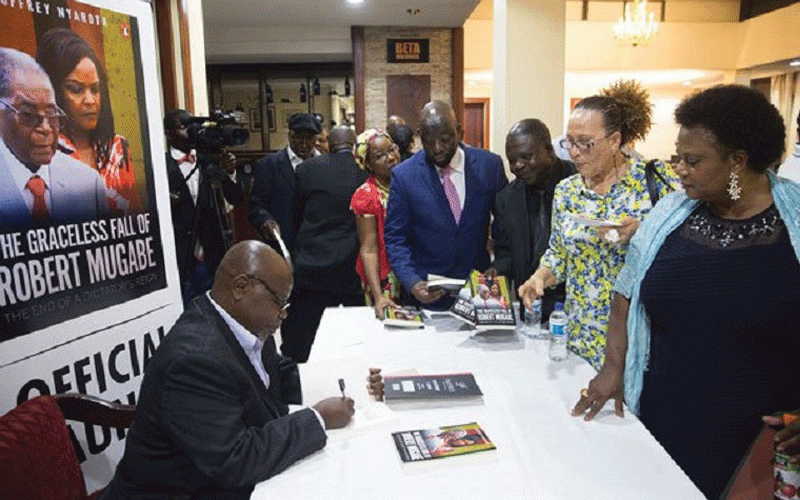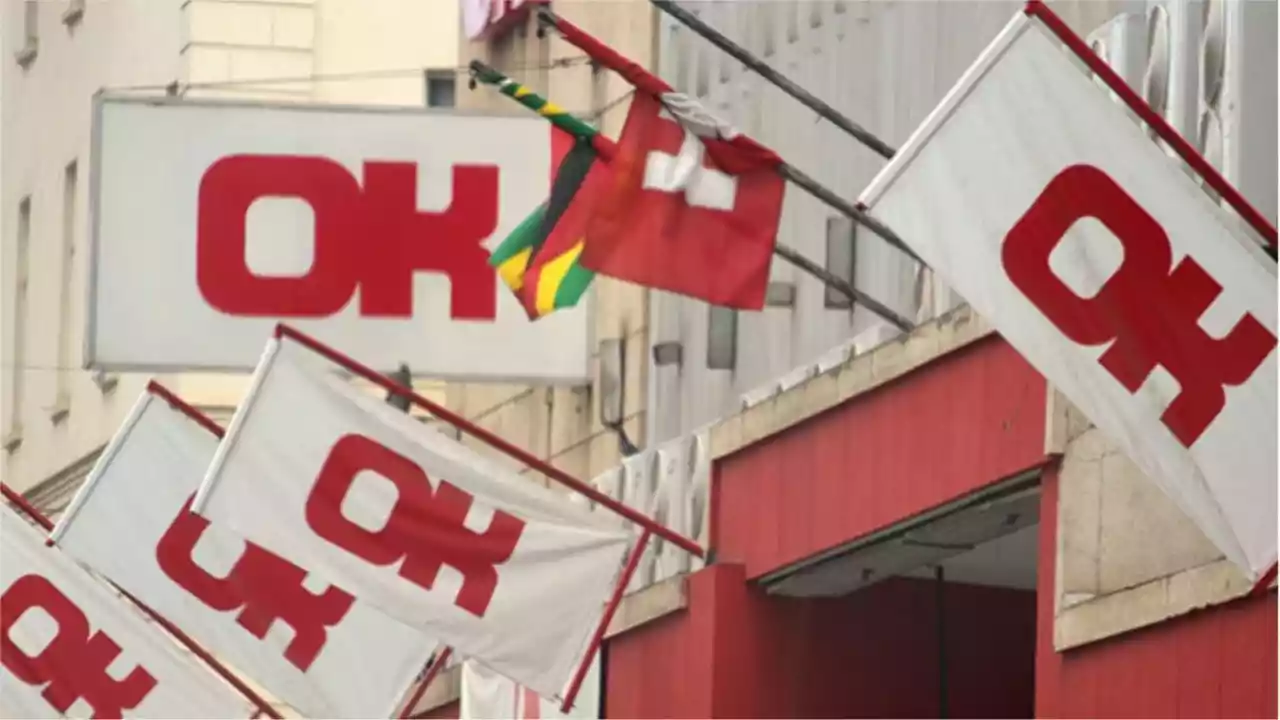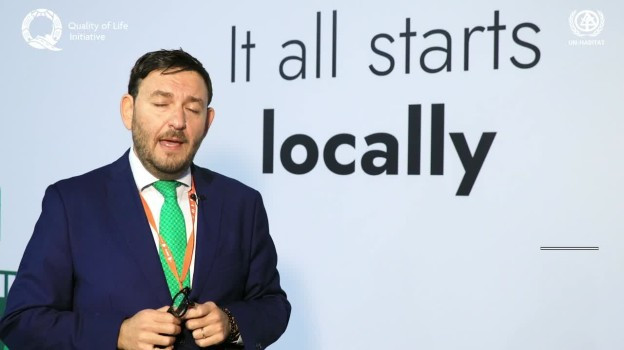
AFTER China, Brazil, India, the United States of America, and Indonesia, Zimbabwe is the sixth-biggest tobacco producer in the world and the largest in Africa.
The tobacco sector is currently worth over US$1 billion, with aggressive growth projections of US$4 billion by 2025, making it a US$5 billion industry.
Approximately 30% of Zimbabwe's tobacco imports, worth US$400 million, come from China, while 10%, worth US$30 million yearly, come from the United Arab Emirates.
About 5% of total exports are in the form of processed tobacco (cutrag), 75% are semi-processed (lamina), and 20% are manufacturing waste (stems, fines).
A significant portion of Zimbabwe's exports, or about 23% of all exports, are tobacco products. As a result, the tobacco market in Zimbabwe now contributes significantly to the country's revenue.
Paradoxically, tobacco small-scale farmers continue to languish in poverty entrenching inequalities and undermining their livelihoods.
Issues fostering inequalities:
Trade injustice
- Mavhunga puts DeMbare into Chibuku quarterfinals
- Bulls to charge into Zimbabwe gold stocks
- Ndiraya concerned as goals dry up
- Letters: How solar power is transforming African farms
Keep Reading
Although tobacco trade injustice architecture can be traced back to the international community. This article focuses on Zimbabwe.
Trade misinvoicing and export companies collaborating to charge a predetermined export price are just two of the many elements that contribute to trade injustice.
Tobacco exporters are strongly encouraged to find ways to keep as much foreign currency out of the country as they can by the government's capital controls and foreign currency retention policies.
According to a 2020 study, the shipments of chrome, platinum, and tobacco from Zimbabwe are clearly the result of coordinated trade misinvoicing.
When all exporters work together to prevent regulators from noticing the discrepancy between the claimed export price and the actual price obtained from the export market, trade mis-invoicingbecomes more difficult to identify and trace.
China reported to the UN's Comtrade that it bought 55 million kg of tobacco from Zimbabwe in 2019 at an average price of US$9,06 per kg for a total cost of US$498,3 million.
On the other hand, Zimbabwe reported that during the same year it only exported 4,8 million kgs to China at an average price of US$7,46, with a total value of US$35,8 million and 141 million kgs to South Africa at an average price of US$5,34 per kg with a total value of US$752,9 million.
This is a perfect example of trade mis-invoicing. Consequently, national revenue production, which is crucial for national development and growth, is undermined.
Additionally, it projects the size and scope of inequality throughout the supply and value chains for tobacco. Small-scale farmers who are in charge of cultivating and maintaining the tobacco crop receive lower wages, which leads to poverty and a debt cycle.
Cigarette cartels
Zimbabwe's cigarette cartels have proliferated, undermining trade justice and efficient tax generation. This is because cigarette cartels benefit from tax invasion.
In Zimbabwe in 2021, the Maverick Citizens Report on Cartel Power Dynamics found that "the financial reward for not paying the sin tax on cigarettes is very attractive”.
This is due to the fact that cartels that traffic in cigarettes are drawn in by the financial gains and rents that come from tax evasion. Cartels receive unauthorised excise duty reimbursements.
This is due to the fact that cigarette manufacturers must pay an excise fee of US$7 per 1000 cigarettes in addition to 40% of the cigarettes' factory price.
If cigarettes are exported, the exporter is eligible to receive a refund of excise charge. If cigarettes are exported, the exporter is entitled to an excise duty rebate.
To that aim, cigarette cartels file legal declarations of cigarette exports and obtain excise duty refunds from the Zimbabwe Revenue Authority (Zimra), after which the cigarettes are smuggled back into Zimbabwe and re-exported or sold on the black market. A scenario that undermines revenue flow and enrich the few.
Market access and competitiveness
Market access and competition in the tobacco sector are still issues in Zimbabwe. This is due to the deeply entrenched monopoly that is supported by structural trade injustice inside the tobacco governance system.
The Tobacco Industry and Marketing Board (Timb), which is in charge of granting licences to consumers and contractors, keeps the tobacco industry largely closed.
For the year 2022, Timb granted licences to 31 contractors, 33 purchasers, and three tobacco auction floors.
Timb has been accused of acting as a gatekeeper for the tobacco industry and defending the interests of a select group of people. The tobacco markets typically see little competition, and farmers have few options for alternate markets to sell their products.
Exploitative contract farming
Many saw the introduction of contract farming in the tobacco sector in 2005 as a corrective measure to revitalise the industry, which had been harmed by the fast truck land reform programme (FTLP) of 2000.
This is due to the fact that the FTLP resulted in the transfer of over 10 million hectares of land to over 146 000 small-scale farmers that were either unskilled or incapable of engaging in commercial farming.
Tobacco was planted on around 29% of the 146 000 small-scale farms in 2012; by 2018, this figure had increased to 46%, amounting to a 29% increase in tobacco production.
The FTLP's beneficiaries, however, lacked the financial means to engage in extensive tobacco farming for profit. Consequentially, tobacco corporations had the chance to set up a dependency syndrome system that underpaid and debt-trapped farmers.
This system of dependency syndrome was carried out through contract farming. Around 80% of small-scale tobacco producers in 2018 had agreements with for-profit businesses.
While this led to an improvement in tobacco yield, the farmer was more ensnared in debt and poverty as a result.
This is due to the significant power imbalance that exists between tobacco farmers and customers. The purchasers, who are businesses engaged in contract agriculture with small farmers, grade the tobacco and determine the price, a situation that has prevented farmers from receiving the true market value of their tobacco.
Child labour, safety and health risks
Globally, the tobacco business has shown to be plagued by the cancerous issue of child labour.
Tobacco production has a long history of including family labour, which inevitably translates to child labour.
This has been made worse by the fact that three million people, mostly small-scale farmers, depended on the tobacco industry for their livelihood.
This implies that women, children, and family labour are not excused. The majority of small-scale farmers in Zimbabwe are unable to provide the crucial resources required to hire labour, which encourages child exploitation.
At the same time, tobacco farmers and workers are exposed to toxic pesticides and nicotine, which has detrimental effect to their health.
Some of the nicotine induced health hazardous, include but not limited to, headaches, changes in blood flow, increased risk of blood clotting, sleep disturbances and dizziness.
This is worsened by the fact that the majority of small-scale farmers and tobacco farmers do not afford medical aid.
The failure by the tobacco value chain transformation plan to acknowledge the safety and health risk in tobacco farming makes it difficult for Zimbabwe to achieve a US$5 billion tobacco industry by 2025.
The above glimpse of issues affecting trade justice underscores the need for an urgent intervention from government and other development actors.
This includes sufficient regulation and policing of employment conditions in the tobacco production value chain to curtail child labour and slave wages, as well as,upholding safety health and environmental protection standards.
The security sector must urgently move in to arrest cigarettes smuggling across the country’s borders to retain national financial benefit from the gold leaf.
Agriculture is an extractive industry and it is imperative that production brings about local benefit sharing for the affected communities. It is heart-breaking to imagine the road infrastructure in some of the highest tobacco producing communities in Zimbabwe and the lowly life the farmers experience day to day.
The ‘Leaving No One Behind’ mantra must be a lived reality to all.
Maketo is an economic justice specialist and works with Zimbabwe Coalition on Debt and Development and Fight Equality Alliance Zimbabwe. These weekly New Perspectives articles, published in the Zimbabwe Independent, are coordinated by Lovemore Kadenge, an independent consultant, managing consultant of Zawale Consultants (Pvt) Ltd, past president of the Zimbabwe Economics Society and past president of the Chartered Governance & Accountancy Institute in Zimbabwe (CGI Zimbabwe). — [email protected] or mobile: +263 772 382 852











